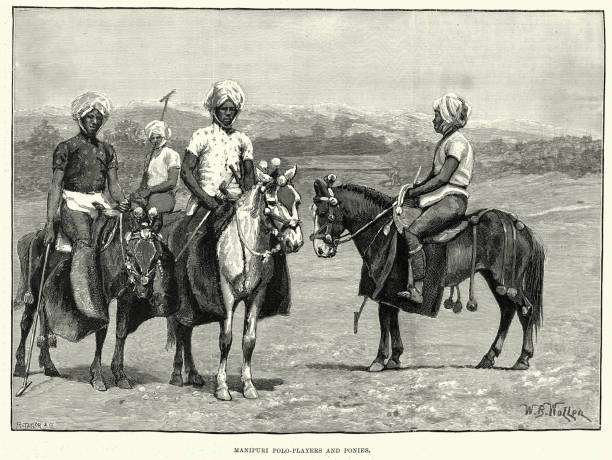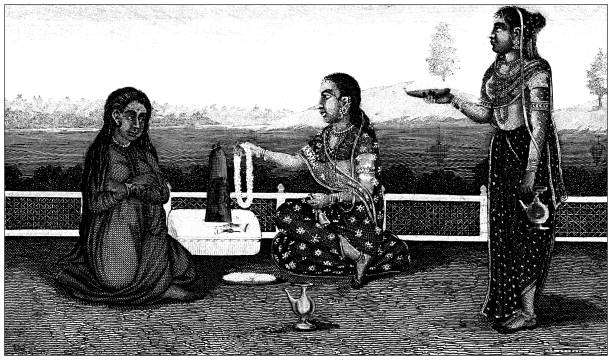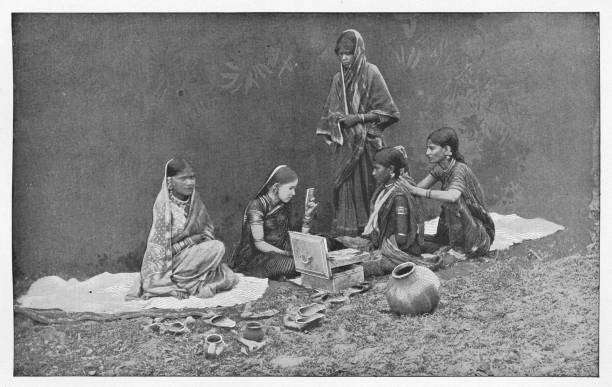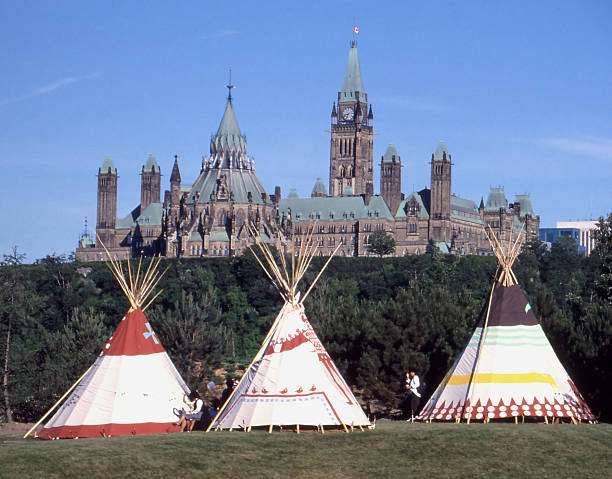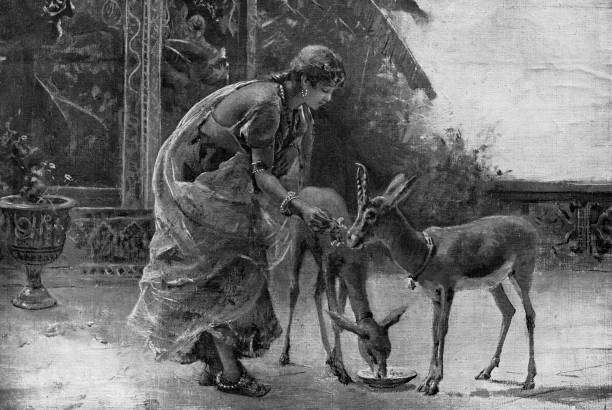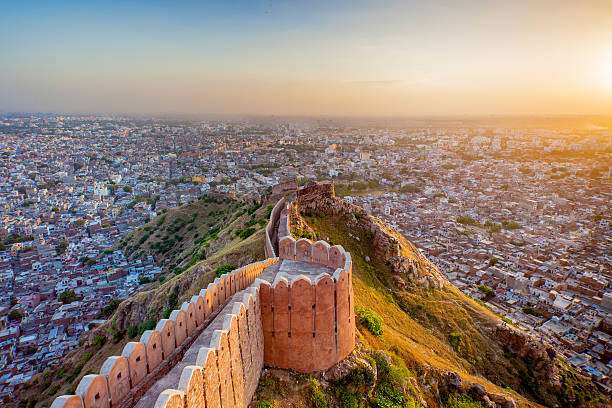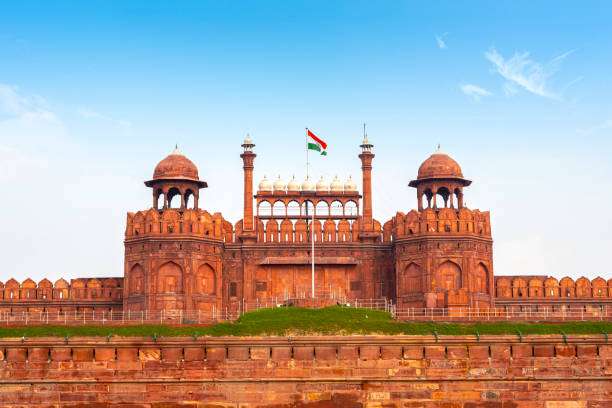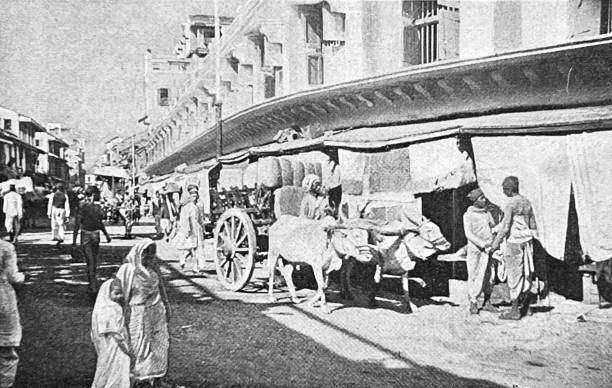An Overview of Indian History Key Figures, Events, and Movements
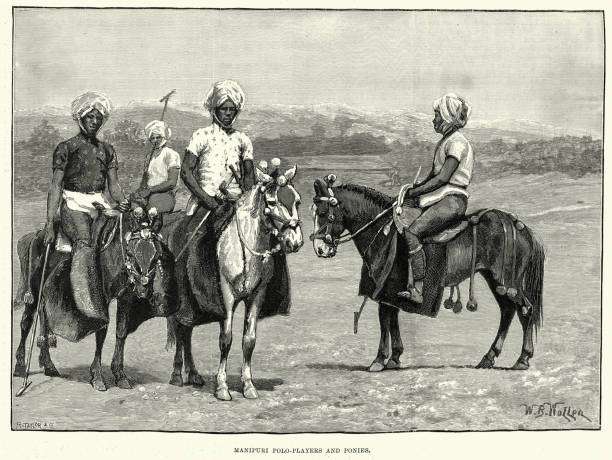
October 19, 2023
The history of India is as varied and colorful as the country itself. From the ancient Indus Valley Civilization to the modern-day Indian Union, India has seen numerous changes in government, society, culture, and technology over the centuries. As this vast nation has evolved, so have its people and their history. In this blog post, we’ll explore how Indian history has changed and developed over the years, from the earliest Indian empires to the present. We’ll take a look at the key figures, events, and movements that shaped the nation and shaped its people’s understanding of their own history.
A Look at How Indian History Has Evolved Over Time
Indian history is an incredibly vast and complex topic, spanning thousands of years. Throughout this time, India has experienced a myriad of changes that have shaped the nation’s culture, politics, and society. From ancient civilizations to contemporary modernity, Indian history has gone through many evolutions, resulting in a vibrant and diverse culture that is present today.
The earliest known traces of human civilization in India date back to the Indus Valley Civilization, which flourished around 3300 BCE. The Indus Valley Civilization was made up of large, walled settlements, and had a highly developed system of infrastructure and agricultural production. Despite their advanced society, the Indus Valley Civilization eventually declined for reasons that are still unclear.
Following the Indus Valley Civilization was the Vedic civilization, which began in the second millennium BCE. The Vedic period saw the advent of Rig Vedic literature, as well as Vedic philosophy and culture. It also saw the emergence of the caste system, which would remain heavily influential in Indian society for centuries to come.
In the 4th century BCE, India was united under a single ruler with the rise of the Maurya Empire. The Maurya Empire was an autocratic monarchy and is credited with unifying parts of Central Asia and South Asia under a single rule. During this time, Buddhism was spread throughout the region, and India began to develop its own distinct culture and religious system.
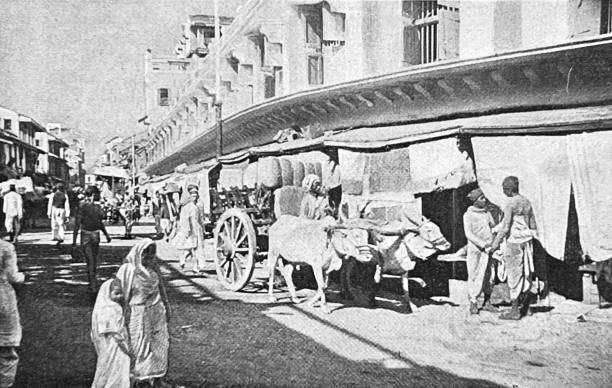
In the 6th century, India was invaded by the Persian Achaemenid Empire. This period saw the beginning of Indian art and architecture, as well as the spread of Hinduism. In addition, the Persian Empire introduced the Gupta Empire, which lasted until the 5th century CE and is credited with reviving Indian culture and art.
The 12th century saw the rise of the Mughal Empire, which brought a period of stability and prosperity to India. During this time, the Mughals implemented reforms in the administrative and political structures of the country. This period also saw the spread of Islamic culture and values, as well as the development of Mughal architecture.
The 18th century saw the arrival of the British East India Company, ushering in a period of colonialism that lasted until 1947. During this time, India experienced numerous social, political, and economic upheavals, as well as the emergence of a more Westernized form of culture.
Finally, in 1947 India gained independence from the British, ushering in a new era of autonomy and self-determination. Since then, India has experienced a period of economic growth, as well as numerous democratic reforms. India’s population and culture have also grown more diverse, with the emergence of new religions and languages.
Today, India is a vibrant, diverse nation with a rich history and culture. Despite all of the changes that have taken place over the centuries, the nation remains an incredibly unique and influential part of the world. As India continues to evolve and progress, its history will continue to be an invaluable part of its legacy.
India is a nation steeped in a rich and vibrant history. From ancient civilizations to modern culture, India’s story is one that continues to captivate and fascinate. The timeline of India’s evolution is comprised of periods of great triumph and prosperity as well as significant strife and struggle. This trajectory of events has informed and shaped present-day India, and it behooves us to look back and explore the stories that have defined it.
As the story goes, pre-historical India was inhabited by an array of ancient civilizations. This was followed by the epic rise of the Mughal Empire and the rise of dynasties such as the Delhi Sultanate and the Maratha Empire. Then, in the eighteenth century, came the dawn of British colonialism. This period was marked by deep resistance to colonial rule in the form of the Indian Nationalism Movement as well as significant changes in Indian culture, social structures, and rights for women.
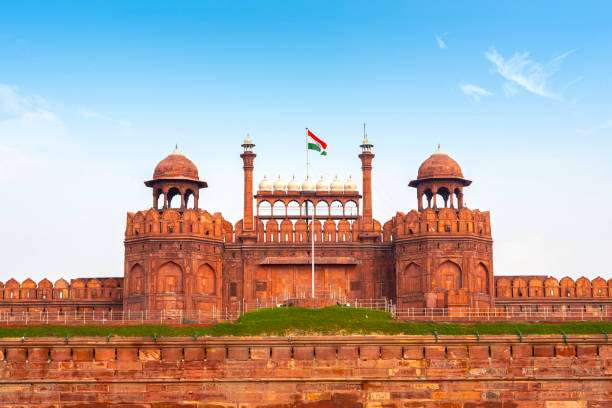
India eventually achieved independence in 1947, and in the decades since, the nation has undergone vast changes. With the rise of Hinduism, Buddhism, and Jainism, the nation’s deep spiritual heritage continues to characterize it. In modern times, India’s spirit of resilience and innovation continues to be reflected in various landmark events that have changed the course of the nation’s history, such as the rise of regional histories, the Indian partition, and the inter-state relationships formed in the wake of independence.
Today, the rich history of India is embedded in its culture and values, making it a truly unique and inspiring nation. As we look to the future, it is important to remember where we have come from and what has found us here. From its ancient civilizations to its modern-day politics, the story of India’s evolution is one of triumph, tenacity, and resilience. By understanding India’s history, we gain a better understanding of the nation, its people, and its past.
India's past is a rich tapestry of cultural, social, political, and religious milestones and changes. From pre-historical civilizations to the emergence of modern India, this country has witnessed several pivotal events in its evolution. From the Mughal Empire and Delhi Sultanate to the British Raj, the Indian people have gone through a number of shifts and reforms. The struggle for independence, the impact of religious beliefs, and the growth of women's rights are all part of this lengthy history. Through exploring timelines, dynastic rulers, and regional histories, one can gain an understanding of the country's 'veil of time'. Investigating key events and the changes that followed is essential in uncovering the stories of India's past and its continuing role in our present.
Who are some important figures in Indian history?
India has a rich history with many great figures who played a pivotal role in shaping the country’s culture and destiny. From emperors and warriors to religious leaders and visionaries, these figures are remembered and revered to this day. Here are five of the most important figures in Indian history.
Mahatma Gandhi was an Indian lawyer and civil rights leader who used peaceful protest and civil disobedience to lead the Indian independence movement. He is often referred to as the “Father of the Nation”, and his teachings of non-violence and human rights are still relevant today.
Ashoka was an Indian emperor who ruled during the 3rd century BCE and is considered one of India’s greatest rulers. After seeing the effects of war, he converted to Buddhism and built hospitals, universities, and other public works. He also developed an ethical code of conduct and introduced a system of weights and measures.
Akbar the Great was the third Mughal ruler of the 16th century who is credited with unifying India and establishing a golden age of peace and prosperity. He is best known for introducing religious toleration and for creating an efficient civil service.
Siddhartha Gautama, better known as “the Buddha”, was an Indian sage who founded the Buddhist religion. His teachings are still among the most widely followed religions in the world, and his teachings of peace, non-violence, compassion, and kindness are as relevant today as ever.

Swami Vivekananda was a Hindu monk and spiritual leader who sought to bring the light of Eastern spirituality to the West. His teachings of Vedanta, meditation, and yoga helped to revive Hinduism in India and to make it more accessible to the rest of the world.
These five figures are just some of the most important figures in Indian history. They each left a lasting legacy and continue to inspire generations of Indians and people around the world. Their teachings, and those of the many other great figures who have shaped Indian society and culture, serve as a reminder of the importance of pursuing peace, truth, justice, and wisdom.
What are some important events in Indian history?
India, a country with a rich and diverse history, is home to many important events that have shaped its culture, society, and ideas. From ancient times to the present day, India has undergone many changes in its political power, social structure, and spiritual movements. Here are some of the most important events in India’s history.
The Indus Valley Civilization (2500-1500 BCE) is the earliest known civilization in the Indian subcontinent and its legacy is still evident today in Indian culture. The city-states of Mohenjo-Daro and Harappa were the most advanced cities in the region at the time, and their inhabitants developed advanced architecture, science, and arts.
The Maurya Empire (322 BCE to 185 BCE) was the first unified kingdom of India, and was the largest empire in South Asia at the time, spanning most of India. It was founded by Chandragupta Maurya and is renowned for its advances in centralized governance, taxation, and diplomacy.
The Gupta Empire (320 CE to 550 CE) is considered the Golden Age of India due to its achievements in science, engineering, arts, and literature. The empire is credited for the invention of the decimal system and for the development of Indian astronomy, mathematics, medicine, metallurgy, and philosophy.
The Mughal Empire (1526 to 1858) was a period of great political, socio-economic, and cultural development in India. During this period, India saw the growth of the Mughal dynasty and advances in military technology, art, architecture, and trade.
The East India Company (1600 to 1858) was a trading company established by the British Crown that established its presence in India and gradually gained political power over the country. The company introduced new laws, regulations and policies that eventually laid the foundation for British colonial rule in India.
The Indian Independence Movement (1857 to 1947) was a political struggle for India’s independence from British colonial rule. Led by Mahatma Gandhi, the movement sought to end oppressive laws, abolish racial and social discrimination, and achieve freedom from foreign rule.
The Partition of India (1947) saw the creation of two independent countries: India and Pakistan. This was a result of the Indian Independence Movement and it was the largest mass migration in history, with more than 12 million people moving between the two countries. The partition had a lasting impact on India's culture and society, as well as its economy.
These are some of the most important events in India’s history, and they have had a lasting impact on the country. From the Indus Valley Civilization to the Partition of India, these events helped shape India’s politics, culture, society, and ideas.
What are some effects of Indian culture on present-day society?
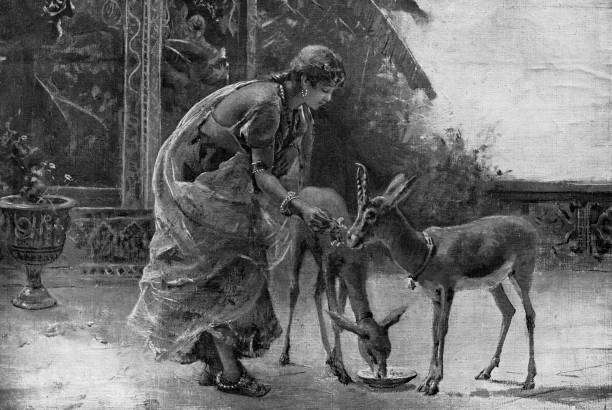
As Indian culture seeps into present-day society, it is evident that there are countless positive effects it has on our lives. From the food we eat, to the music we listen to, and the way we interact with others, it can be seen that Indian culture has greatly influenced our lives in more ways than one.
To begin with, the food we eat today is heavily influenced by Indian culture. Indian cuisine consists of a vast array of flavors, spices, and combinations that have been passed down for generations. Whether we are having a classic Indian meal like a biryani or a simple dal makhani, we can’t help but appreciate the wide variety of flavors and aromas that Indian cuisine has to offer.
Besides food, Indian culture has also had a major impact on the music industry. Indian music has evolved over time to become one of the most popular genres in the world. From ancient folk songs to the current Bollywood tracks, Indian music has always had a melodious quality that makes it enjoyable to all. The influence of Indian music can be seen in other genres like hip-hop, pop, and even jazz.
One of the most prominent aspects of Indian culture is the way we interact with each other. In Indian society, great value is placed on respecting elders, obeying those in authority, and honoring traditions. This sense of kindness and mutual respect is something that has trickled down into our present-day society, making us more courteous toward one another.
Finally, Indian art and literature have had a huge impact on present-day society. From the intricate designs of the Buddhist paintings to the timeless tales of the Panchatantra, Indian art and literature have captivated millions of people all over the world. Even today, these elements of Indian culture are seen in movies, shows, and books, inspiring us to appreciate the beauty of Indian culture.
All in all, it is clear that Indian culture has had a great influence on our present-day society. Whether it is in terms of food, music, art, or literature, Indian culture has had an immense impact on our lives. This is why it is important to appreciate the rich heritage of India and to always strive to keep the essence of Indian culture alive.
What are some key movements that have shaped India's history?
India has a long and multifaceted history, and a number of important and influential movements have helped shape the country’s culture and society in different ways. Here are some of the key movements that have contributed to India’s history.
Indus Valley Civilization: One of the earliest known movements in India was the Indus Valley Civilization, one of the oldest civilizations known to man. The ancient Harappan culture flourished in the Indus Valley around 2600-1900 BCE and helped to influence much of the ancient culture and traditions of India that still exist today.

Buddhism: Buddhism is one of the most influential religions in India, and it has had a major impact on the culture and beliefs of the Indian people. The teachings of the Buddha and its related traditions came to India around the 5th century BCE and quickly spread to other parts of the subcontinent. To this day, millions of people in India still follow the teachings of the Buddha, and his philosophy still influences many facets of Indian life.
Jainism: Jainism is another major religion in India, and its influence on India’s culture and society has been profound. It was founded by the Hindu sage Mahavira in the 6th century BCE and teaches a doctrine of non-violence and respect for all life. This movement has shaped Indian beliefs and values, as well as its attitude towards the environment and nature.
Hinduism: Hinduism is the dominant religion in India, and it has been one of the most influential forces in India’s history. It has had a major impact on Indian culture, philosophy, and politics, and its teachings have been shaped and adapted over time to reflect the changing needs of the people.
Sikhism: Sikhism is a monotheistic religion founded in the 15th century by the Sikh Guru Nanak. It was one of the first religions to recognize the equality of all people, regardless of their religion, caste, or gender. It has had a significant impact on Indian society, and its teachings of generosity and service to others still resonate today.
Indian Independence Movement: India’s independence movement was one of the most influential movements in India’s history, and it shaped the course of the country’s future. This movement began in the late 19th century, and it was led by figures such as Mahatma Gandhi and Jawaharlal Nehru. The movement sought to end British colonial rule, and after years of struggle, India achieved its independence in 1947.
These are just some of the key movements that have shaped India’s history. From ancient civilizations to modern-day religions, these movements have each had a profound impact on the culture and society of India.
Exploring Indian History: A Comprehensive Guide
Delve into India’s past and explore the rich history of this fascinating country. Take a journey through India’s evolutionary history and look at how it has changed and developed over time. Uncover the landmark events that shaped Indian history, examine the cultural and social milestones, and investigate the development of India from ancient to modern times. Learn how India’s past informs its present and analyze the impact of religion on Indian history. This comprehensive guide is your key to discovering the many facets of Indian history.
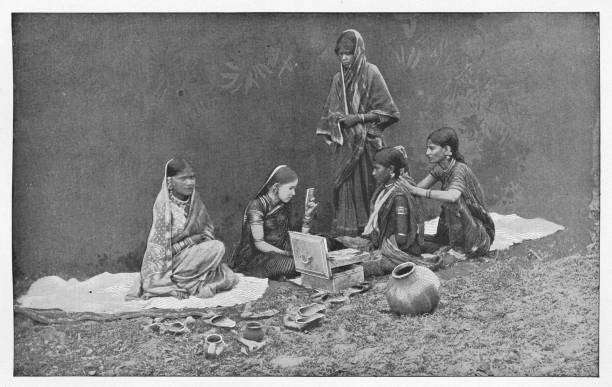
• Comprehensive overview of Indian history, from the Pre-Historical Era to Modern India
• Examines the cultural, social, political, and religious stories that shaped India’s past
• Explores India’s dynasties, major rulers, regional histories, and the Indian partition
• Investigates the impact of the Mughals and British Raj on Indian history
• Tracks the major developments in India since its independence from British rule
Summary
- Indian history spans thousands of years and has seen numerous changes in government, society, culture, and technology over the centuries.
- The Indus Valley Civilization was the earliest known trace of human civilization in India, which flourished around 3300 BCE and saw the emergence of the Vedic civilization, Vedic philosophy, and the caste system.
- India was united under a single ruler with the rise of the Maurya Empire in the 4th century BCE, which brought Buddhism to the region and brought its own distinct culture and religious system. The Persian Achaemenid Empire introduced the Gupta Empire, which revived Indian culture and art in the 5th century CE. The Mughal Empire brought stability and prosperity to India in the 12th century, followed by the spread of Islamic culture and values in the 13th century. India gained independence from the British in the 18th century and experienced numerous social, political, and economic upheavals before gaining self-determined autonomy in 1947. The country has since experienced economic growth, democratic reforms, and a diverse population and culture. The timeline of India's evolution is comprised of periods of great triumph, prosperity, strife, struggle, resistance, and struggle. Despite all the changes, India remains a unique and influential part of the world.
🇮🇳 As the thrilling ICC Cricket World Cup game between India and Bangladesh unfolds at the MCA Stadium, we invite you to dive into the rich tapestry of Indian history.
At Sanjay Lathiya, we bring you an in-depth overview of Indian history, key figures, events, and movements. Just as the cricket game is a testament to the spirit of competition and camaraderie, our blog post reflects the resilience, diversity, and unity of India.
Visit our site: https://www.sanjaylathiya.com/ and explore the blog post here:
Just as Shakib Al Hasan clinched the Player of the Match award in the last match between these teams, our blog post aims to be a winner in your quest for knowledge.
As the underdogs in the World Cup 2023 have shown how to slay the giants, our blog post will show you how the key figures and events in Indian history have shaped the nation.
We offer fast shipping and 100% customer happiness. Dive into the fascinating world of Indian history today!
#SanjayLathiya #IndianHistory #ICCWorldCup2023 #IndiaVsBangladesh #KnowledgeIsPower
FAQS
Q1. What is the history of India?
A1. India has a long and complex history, beginning with the Indus Valley Civilization in the Bronze Age and culminating with the present-day Indian Union. This history includes many empires, movements, and cultures, with each contributing to the development of the country.
Q2. Who are some important figures in Indian history?
A2. There are several important figures who have had a significant influence on Indian history, such as Ashoka the Great, Akbar the Great, Mahatma Gandhi, Jawaharlal Nehru, and Ambedkar.
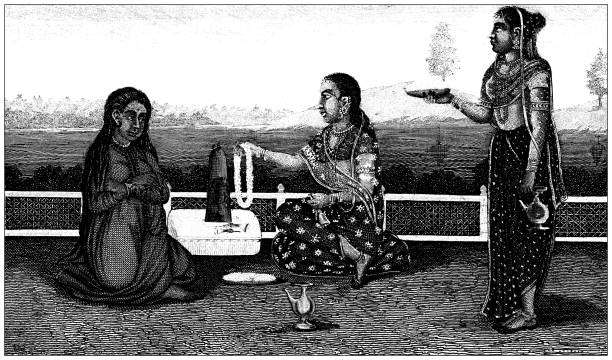
Q3. What are some important events in Indian history?
A3. Many events have shaped India's history, such as the revolt of 1857, the Indian Independence Movement, and the adoption of the Indian Constitution in 1950.
Q4. What are some effects of Indian culture on present-day society?
A4. Indian culture has had a lasting impact on society today, influencing many aspects such as religion, art, literature, language, and architecture.
Q5. What are some key movements that have shaped India's history?
A5. Key movements such as the Mughal Empire, the British Raj, the Indian National Congress, and the Indian Freedom Movement have all had a great impact on Indian history and culture.
